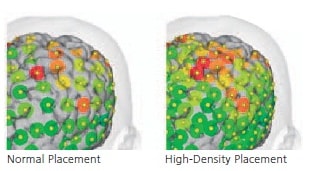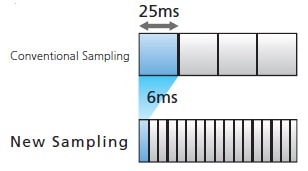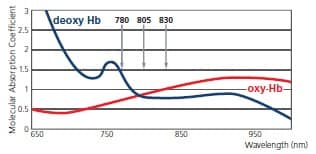LABNIRS - Features
Functional Near-Infrared Spectroscopy System for Research
High Performance

Next-generation optical brain-function measurements start withmulti-channel and high density

Accepts up to 40 sets––2.5 times more than before (142 channels max.).
Spatial resolution doubled for high-density measurements.
High-speed sampling

Captures rapid cerebral blood flow signals in just 6 ms (previously 25 ms).
Reliability of 3 wavelengths and photomultiplier tube achieve superb sensitivity

Three semiconductor laser wavelengths capture more accurate data.
A photomultiplier tube captures the weakest cerebral signals.
Easy Operation
Graphical User Interface
The intuitive user interface permits complex measurements and analysis conditions settings with simple button clicks.
【Measurement Mode】
【1】 Simple design of fiber placements
【2】 The set fiber placements are reflected on the trend graph and map during measurements.

【Analysis Mode】
| 【1】 | Comprehensive data processing functions Features a variety of analysis and processing tools, including independent component analysis (ICA*3), frequency filters, task addition, channel addition, centroid and integral analysis. |
| 【2】 | Statistical analysis functions General linear model (GLM) statistical processing offers simple statistical analysis and evaluations at the point of measurement. |
| 【3】 | Multi-distance functions Combining short-distance measurements reduces the effects of scalp blood flow and other extra signals. |
| 【4】 | Batch processing functions Permits batch processing with predetermined analysis procedures. |
| 【5】 | Data output functions Permits output as text files (compatible with NIRS-SPM). |
| 【6】 | Data continuity FOIRE Series data can be loaded to make use of past data. |

Outstanding Scalability

- Comprehensive options provide powerful measurement support
- Increase the number of channels according to the aim of the experime
Downloads
Download the latest brochure.


